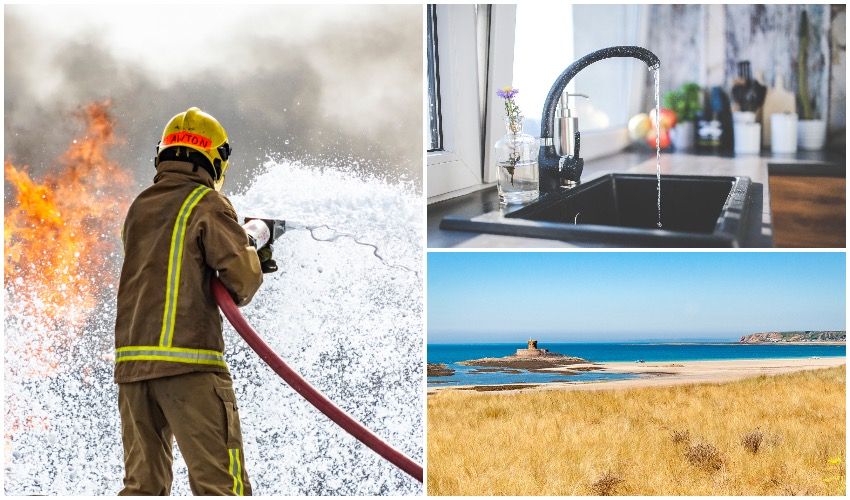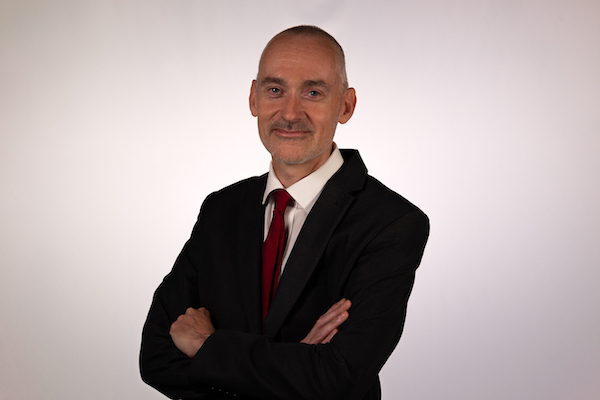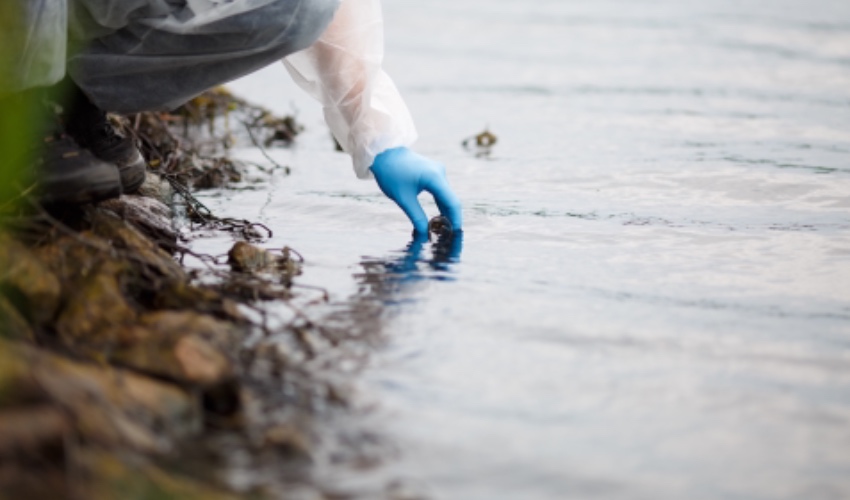


The island's new head of Public Health has said he wants to meet islanders who think they have been affected by PFAS – a manmade chemical found in drinking water in Jersey, which has been linked to cancer, kidney disease and weakened immunity.
New to his role, Professor Peter Bradley wants to hear from residents who attribute medical conditions they have experienced to ingesting the carbon-based ‘forever’ chemical, which is present at trace levels in drinking water but has been found in more significant quantities around St. Ouen’s Bay and the Pont Marquet area of St. Brelade.
This is because a type of PFAS was an ingredient of firefighting foam sprayed at the Airport until the early 90s, which has seeped into groundwater, streams, and boreholes in the area.
It has prevented Jersey Water fully using boreholes in the bay, which it says threatens the long-term security of water supplies in the island.

Pictured: Professor Peter Bradley is the Island's new Director of Public Health.
Residents living and working close the Airport say that they have experienced atypical levels of illnesses that studies have linked to PFAS, particularly problems with the liver, kidneys and thyroid gland.
The issue is long-running, with the Airport agreeing to pay for homes to be connected to mains water and providing bottled water to affected residents when the contamination came to light 20 years ago.
Giving his first public comments on the issue of PFAS, Professor Bradley, who is also the new chairman of STAC, said: “We are considering the issue; we’re looking at the scientific evidence and I’m hoping we’ll be able to reach some conclusions in the next few weeks which will be the start of a dialogue with the community.
“I can’t really give any specific conclusions at the moment, but I realise that this has been an issue for some time.”
Some residents have called for a public inquiry into the issue and for the Government to start testing their blood to assess the level of PFAS it it.
Responding to this, Professor Bradley said: “I can’t comment on the issue of blood tests specifically but what I can say is we’re looking at all the scientific evidence of how this pollutant may affect health.
“There’s been a lot of ongoing work in Jersey over the last few years in terms of ensuring that the environment is as free as possible from this chemical, which unfortunately is everywhere in our lives, in the sense it’s there whichever country you live in.
“So, what we’re trying to do is ensure that the levels are suitably low in Jersey and one thing that’s very important is that water from the mains supply is absolutely safe and that has been assured by Environmental Health colleagues and Jersey Water.”
Professor Bradley said he wanted to listen to the concerns of the community and was aiming to set up a meeting in the next few weeks.
“It’s very, very important to listen to the concerns of the community and to work out how best to help islanders, so - in addition to looking at the scientific evidence - listening to their experiences and planning together to improve matters is our focus,” he said.
Pictured: St. Ouen's Bay resident Sarah Simon is asking the Government to carry out blood tests to see if there is a link between PFAS ingestion and ill health.
“Obviously, we’re going as quickly as we can but the pandemic is still our focus – we’re starting a new Public Heath function so things will obviously speed up, but it’s a very busy time for us at the moment.”
Responding to the planned engagement, St. Ouen’s Bay resident Sarah Simon – one of those who has campaigned for an inquiry and blood testing – said: “Professor Bradley’s apparent willingness to engage is a positive step and we hope that this will bear fruit.
“As a representative of the community affected by PFAS poisoning, I would very much welcome access to a toxicologist that understands the harm caused and can perhaps help assess with treatment and the potential for continued screening for known diseases caused by PFAS."

Pictured: Studies to assess the impact of PFAS on St. Ouen's Bay and Pont Marquet are about to begin.
She continued: “Communities affected by PFAS pollution in their water supply, particularly in America and Australia, are offered free blood tests, free healthcare and free counselling.
"It is of great importance to Jersey that islanders affected by this serious injustice are not continually ignored by those who have a responsibility and duty of care to the public’s health.”
The Government has commissioned a hydrogeological study of St. Ouen’s Bay and Pont Marquet to assess the extent of PFAS pollution. However, this has been criticised by a former Airport Executive, who claims it is the wrong type of research.
Comments
Comments on this story express the views of the commentator only, not Bailiwick Publishing. We are unable to guarantee the accuracy of any of those comments.